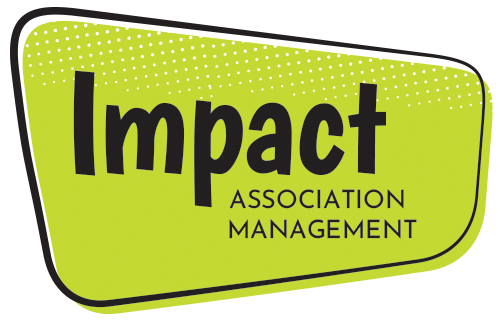By, Shannon Casey, Association Manager, Impact Association Management
Now more than ever, individuals are choosing to engage with companies and organizations that align with their personal ethics. This “ethical consumerism” extends to an individual’s decision to become a member of a particular association or not, making it vitally important for associations to establish and effectively communicate their organizational values. Established values and ethics ensure association members, potential members, and the world at large know what the association stands for and what behavior is expected in its community.
The American Society of Association Executives notes in their blog post Advice for Creating a Code of Conduct in Your Association that “...associations should embody and support values that their communities esteem, including ethical practices and standards of conduct for members, customers, employees, and others who engage with associations.”
3 key takeaways for establishing values and ethics
I recently had the privilege of attending the 2023 WSAE Annual Summit where I participated in an engaging session presented by Elizabeth Schlicht, Executive Director at Association Acumen. Schlicht shared tips to start the conversation about values and ethics for your association and methods for incorporating them once they are effectively established. Below are my three key takeaways from the session:
1. Think clearly about your values before implementing
During her presentation, Schlicht highlighted the importance of considering the values you would like to set and ensuring the impact they will have actually aligns with your association's culture. For example, setting a value of spirituality for an association that is strictly non-denominational would go against the association’s core functions.
2. Remember conflicts are bound to arise
To effectively establish association-wide values and ethics, communication needs to happen at every level. This communication, particularly about something that is subjective and often very meaningful to people, will inherently breed conflict.
In her presentation, Schlicht reminded us that everyone who comes to the table brings a different background, experiences, and values with them. As a result, there will be differing opinions on what is deemed important for the association. Do not let the conflict stop you from moving forward. Simply understand that conflict is a natural part of the process and maintain open communication to come up with a shared solution.
3. Allow open discussion
As noted, conflict is bound to arise. However, open discussion can be a helpful tool to mitigate that conflict and come to a successful resolution. Schlicht suggested a roundtable discussion where you ask everyone involved to share their thoughts, opinions, and values. The group can then discuss what values are most aligned with the association’s culture and mission. This ensures that everyone is heard and allows your team to work together to establish values and ethics that best serve the association and its members.
The WSAE session with Elizabeth Schlicht provided valuable insight into the importance and necessary steps for establishing values and ethics into professional non-profit associations. Effectively implementing and communicating association values will provide members with a sense of structure and moral compass to guide decision-making on all levels.

